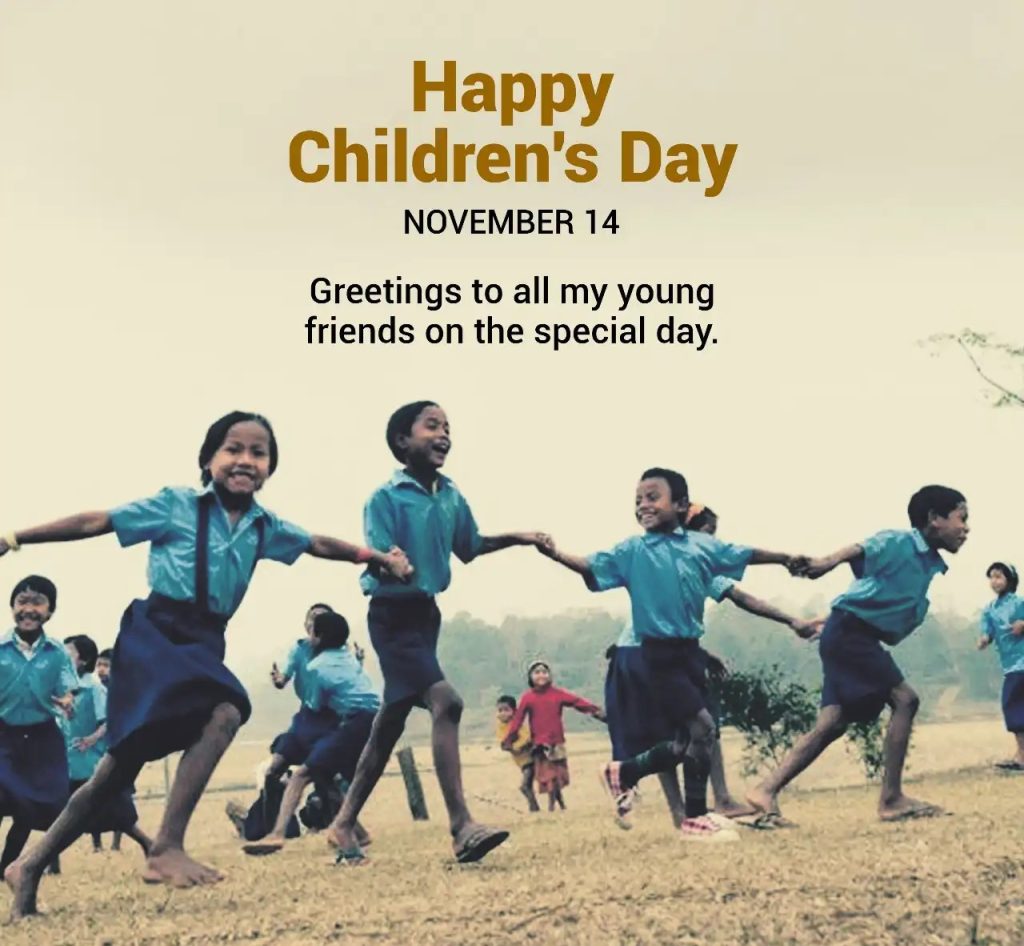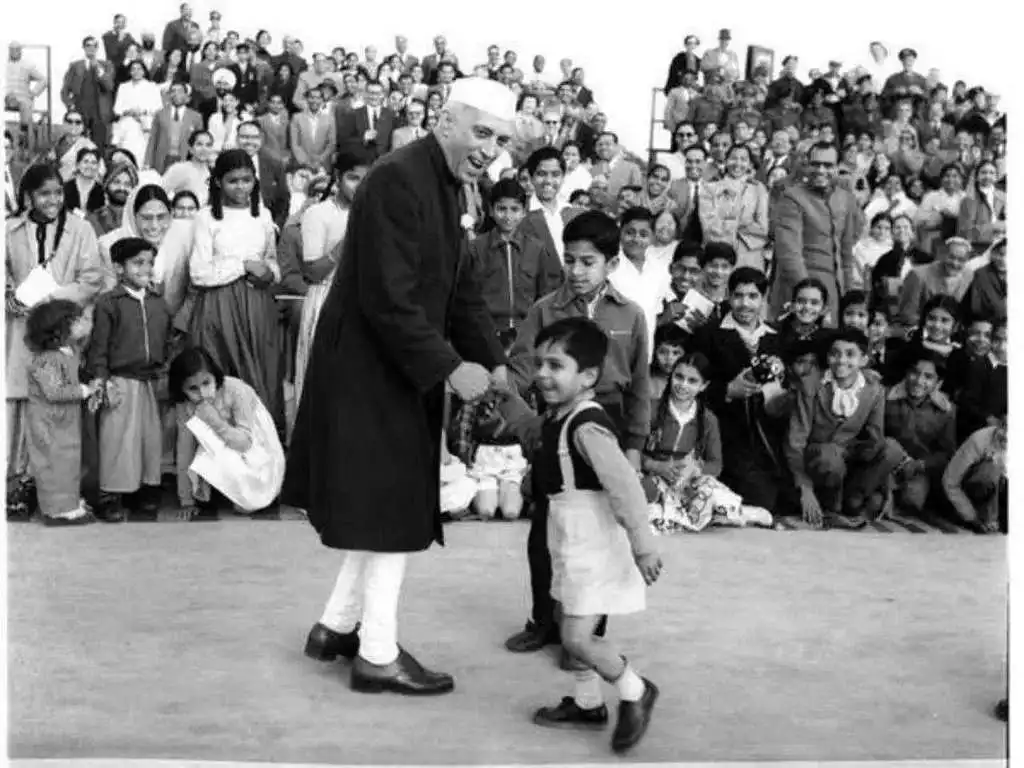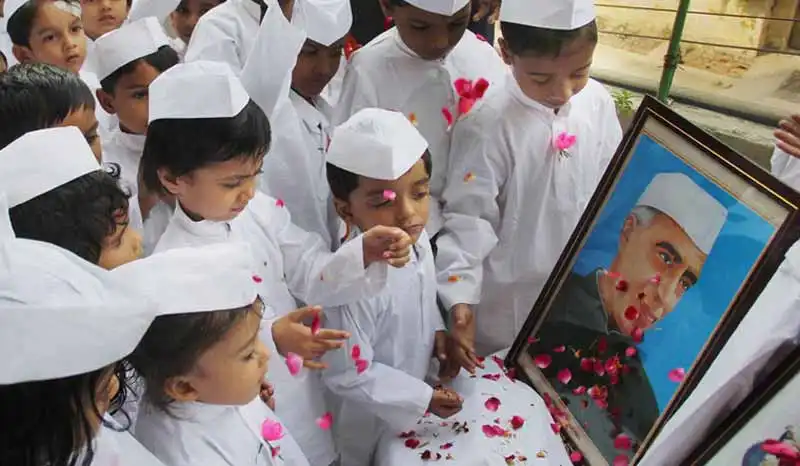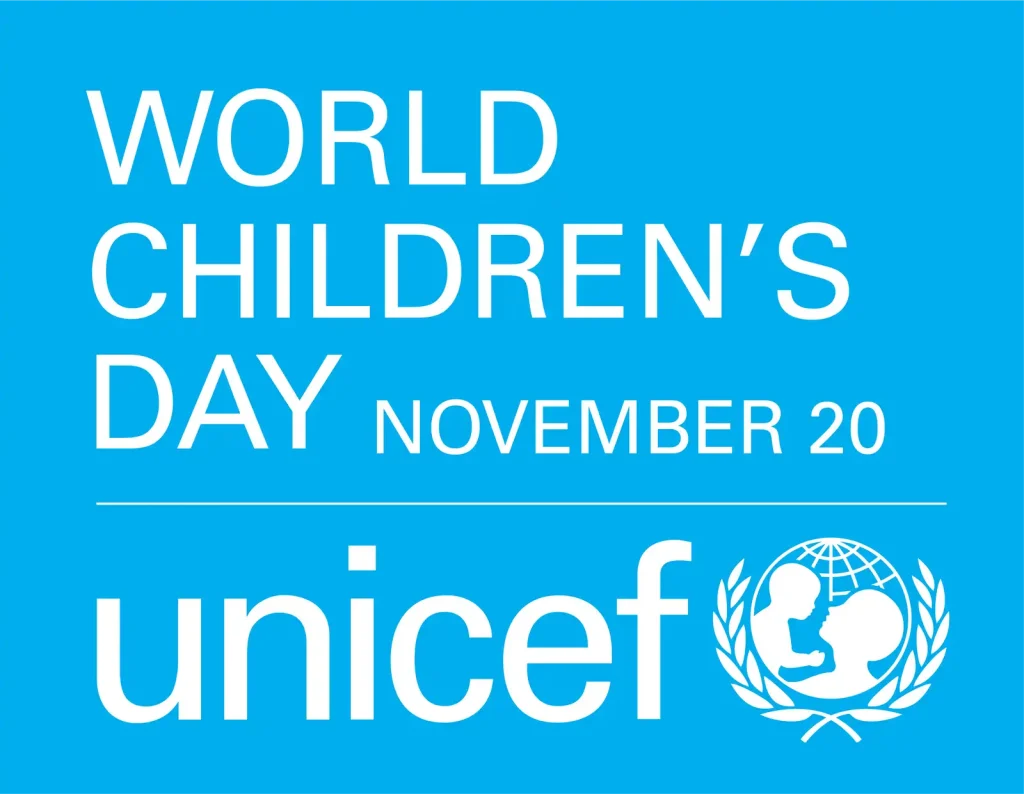Children’s Day is a special occasion celebrated across many nations to honour the importance of children in society and their potential to shape the future. In India, Children’s Day is observed on 14th November every year, commemorating the birth anniversary of Jawaharlal Nehru, the first Prime Minister of India. This day holds significant importance as it focuses on the welfare, rights, and education of children, reminding everyone that childhood is a vital period for personal and societal growth.

The Legacy of Jawaharlal Nehru
Jawaharlal Nehru, affectionately known as Chacha Nehru by children, was a strong advocate for children’s education and well-being. He believed that children are the real strength of a nation and the foundation for a better future. Nehru’s love for children and his vision of their future in shaping the country’s success led to the establishment of Children’s Day on his birthday. His belief in inclusive education and child welfare is reflected in many of India’s early policies. Nehru even founded the Children’s Film Society India in 1955 to create content that would entertain and educate young minds.

History of Children’s Day
Although Children’s Day was initially observed on 20th November in line with World Children’s Day, the date was later shifted to 14th November after Nehru’s death in 1964 to honour his contributions to children’s welfare in India. Interestingly, the celebration has roots even before Nehru’s birthday became its official date. In 1948, the Indian Council of Child Welfare began observing “Flower Day” on 5th November to raise funds for the United Nations Appeal for Children. This later evolved into Children’s Day as we know it today.

Importance of Children’s Day
Children’s Day is not just a celebration but also a reminder of the critical need to provide every child with love, care, and a proper upbringing. It brings attention to the significance of education, the fight against child labour, and the protection of children’s rights. This day helps reinforce the idea that childhood is not just a phase of life but a cornerstone of personal development and future societal progress. It also highlights challenges faced by children globally, such as lack of access to education, poverty, and exploitation.

In 2023, the theme for World Children’s Day was “For Every Child, Every Right”, reflecting the commitment to ensuring that all children, regardless of background, have access to the rights and opportunities they deserve. This theme encourages everyone—governments, communities, and individuals—to create an environment where children can grow and thrive safely.

How Children’s Day is Celebrated
In India, Children’s Day is celebrated with much joy and enthusiasm. Schools and educational institutions organise various fun-filled activities like debates, quizzes, art competitions, and cultural programmes. Teachers often take the lead in putting together skits and performances for the children, making them feel special and appreciated. The exchange of gifts, such as books and sweets, is also a common practice. Outside of schools, communities and organisations work to spread awareness about children’s rights and contribute to initiatives supporting education and healthcare for underprivileged children.

On this day, children are often encouraged to express their dreams, aspirations, and ideas, reflecting Nehru’s belief that they are the architects of the nation’s future. Special tributes are also made to Nehru, honouring his vision for a world where every child is valued and cared for.

Celebrations Around the World
Though Children’s Day is celebrated on different dates in different countries, the essence remains the same—recognising children as the hope for the future. For example, World Children’s Day is observed globally on 20 November, marking the day the United Nations adopted the Declaration of the Rights of the Child in 1959. This international celebration promotes awareness about children’s rights and their well-being across the globe, urging leaders to continue efforts towards a safer and better future for all children.

In countries like Japan, Children’s Day is celebrated on 5th May, while UNICEF marks Universal Children’s Day on November 20. Each country customises its celebrations to fit its culture and values, but the core message remains: children deserve love, care, and protection to reach their full potential.

Protecting Children’s Rights
Celebrating Children’s Day also reminds us of the ongoing work needed to protect children from harm. Globally, many children still face severe challenges such as poverty, lack of education, hunger, and abuse. Organisations like UNICEF play a crucial role in addressing these issues, focusing on initiatives that provide access to education, healthcare, and a supportive environment for children.

The United Nations uses this day to promote the Convention on the Rights of the Child, urging nations to take stronger steps to ensure every child’s right to a safe, healthy, and supportive upbringing. This includes protecting children from exploitation, providing quality education, and ensuring equal opportunities regardless of background.

Why Children’s Day Matters
At its heart, Children’s Day is a celebration of innocence, hope, and every child’s incredible potential. It’s a day to cherish the joys of childhood and to acknowledge the responsibility adults have in shaping a better world for the next generation. By celebrating Children’s Day, we are reminded that children are more than just young individuals—they are tomorrow’s scientists, artists, leaders, and thinkers.

But beyond the celebrations and festivities, it’s important to reflect on how we can contribute to making the world a better place for every child. Whether it’s through supporting educational initiatives, advocating for children’s rights, or simply spending quality time with the children in our lives, each of us has a role to play.

Conclusion
Children’s Day is more than just a fun celebration—it’s a powerful reminder of the role children play in shaping the future of society. In India, the day holds special significance as it also honours the legacy of Jawaharlal Nehru, who believed that nurturing and protecting children is the foundation for a prosperous nation. Through education, love, and care, we can ensure that every child grows up with the opportunities they need to flourish and contribute to the world.
For more interesting articles, please visit www.kidzherald.com





